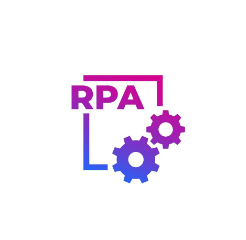What you will learn
By the end of this course, participants will be able to:
- Develop complex and scalable RPA workflows
- Lead the process discovery, analysis, and prioritization for automation
- Implement best practices in RPA development, deployment, and management
- Integrate RPA with advanced technologies for cognitive automation
- Ensure security, compliance, and governance in RPA implementations
- Explore advanced topics and stay informed about future trends in RPA
Beneficial for
This course is suitable for:
- RPA Developers
- RPA Architects
- Automation Consultants
- IT Professionals leading RPA initiatives
Course Pre-requisite
Participants should have a basic understanding of:
- Completed a foundational RPA course or equivalent experience
- Proficiency in using at least one RPA tool (UiPath, Automation Anywhere, Blue Prism)
- Advanced understanding of business processes and IT concepts
Course Outline
Definition, significance, and evolution of RPA
Key components of RPA ecosystems
Business use cases and benefits of RPA implementations
In-depth exploration of popular RPA tools (e.g., UiPath, Automation Anywhere, Blue Prism)
Evaluating and selecting the right RPA platform for specific business needs
Advanced features and capabilities of leading RPA tools
Building complex and scalable RPA workflows
Error handling strategies and exception management
Implementing advanced scripting techniques for efficiency
Advanced techniques for identifying and prioritizing processes for automation
Analyzing and documenting complex workflows
ROI assessment and continuous improvement in RPA processes
Design principles for building efficient, maintainable, and scalable RPA solutions
Advanced version control and documentation in RPA development
Performance optimization, resource management, and code review
Integrating cognitive automation and artificial intelligence in RPA
Implementing machine learning models within RPA workflows
Leveraging AI to enhance decision-making in automated processes
Integrating RPA with advanced technologies and systems (APIs, databases, web services)
Designing and implementing end-to-end automated workflows
Advanced scenarios of integrating RPA with third-party tools and applications
Advanced techniques for packaging and deploying RPA solutions
Monitoring and managing complex automated processes
Implementing advanced exception handling and maintaining system stability
Advanced strategies for securing RPA implementations
Ensuring compliance with data protection regulations
Implementing robust governance frameworks for RPA projects
Exploring emerging trends in RPA (e.g., hyperautomation, advanced analytics)
Advanced topics in RPA development and implementation
Continuous learning and staying updated in the rapidly evolving field of RPA

